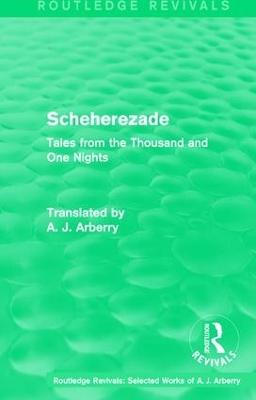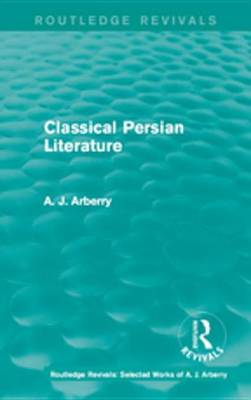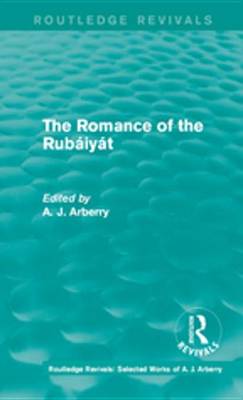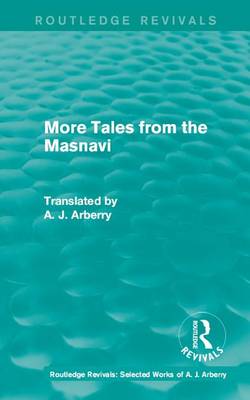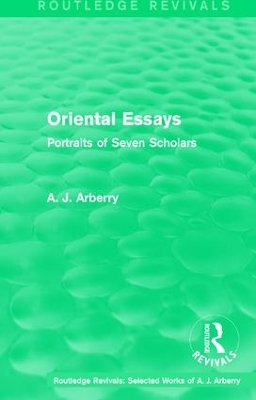Routledge Revivals: Selected Works of A. J. Arberry
5 primary works • 6 total works
Book 1
First published in 1953, this translation of part of the Arabian Nights by A. J. Arberry offers four famous stories in modern idiom: Aladdin, Judar, Aboukir and Abousir, and the Amorous Goldsmith. The introduction provides a brief analysis of earlier translations of the tales and explains their value as indicators of the society in which they were written.
This work will be of interest to those studying Middle-Eastern literature and history.
Book 2
These seven poems, translated by A. J. Arberry in 1957, are the most famous survivors of a vast mass of poetry produced in the Arabian Desert in the sixth century. Arberry’s introduction explains to the reader what was known about the poems and how they came to be preserved and distributed over time. The epilogue particularly interrogates the authenticity of the poems and tracks how they have been transmitted over time.
This work will be of interest to those studying Persian and Middle-Eastern literature and history.
Book 3
First published in 1958, this work by one of Britain’s most celebrated Orientalist scholars, tells the story of the rebirth of national literature in Persia after the fall of the Sᾱsᾱnian empire in the seventh century. It traces the course of this literature’s development and full maturity from the ninth century to the end of the fifteenth century and looks at a number of important writers including the Saljῡq poets, Rῡmῑ, ῌᾱfiz and Jᾱmῑ.
This work will be of interest to those studying Persian and Middle-Eastern literature and history.
Book 4
First published in 1959, this reprint of the first edition of Edward FitzGerald’s translation of the Rubáiyát is accompanied by an introduction and notes by A J Arberry, one of Britain’s most distinguished Orientalist scholars. The Rubáiyát is a selection of poems written in Persian attributed to Omar Khayyám.
The work will be of interest to those studying Middle Eastern Literature.
Book 6
First published in 1963, this work puts into clear and rhythmical English one hundred stories and apologues of the Masnavi of Rumi.
Composed over a period of many years during the thirteenth century, as a manual of instruction and initiation into spiritual life, the Masnavi has long been acclaimed the greatest mystical epic of Islam. The tales were designed to illustrate in human terms the often complex doctrine, and this they do with a wealth of beauty, honour and pathos, as appealing to the modern reader as to the medieval audience to which they were originally addressed. The volume, like its predecessor Tales of the Masnavi, is included in the UNESCO list of representative great works of world literature.
This work will be of interest to those studying Islam and Middle Eastern literature.
First published in 1960, this work describes the lives and labours of six great scholars - Simon Ockley, Sir William Jones, E. W. Lane, E. H. Palmer, E.G. Browne and R. A Nicholson. These men were devoted to building a bridge between the peoples and cultures of Europe and Asia. To these biographical essays, Arberry has added a short autobiography and an eloquent plea for the further encouragement of Oriental studies.
This book will be of interest to those studying Middle-Eastern studies and the history of Orientalist study.
